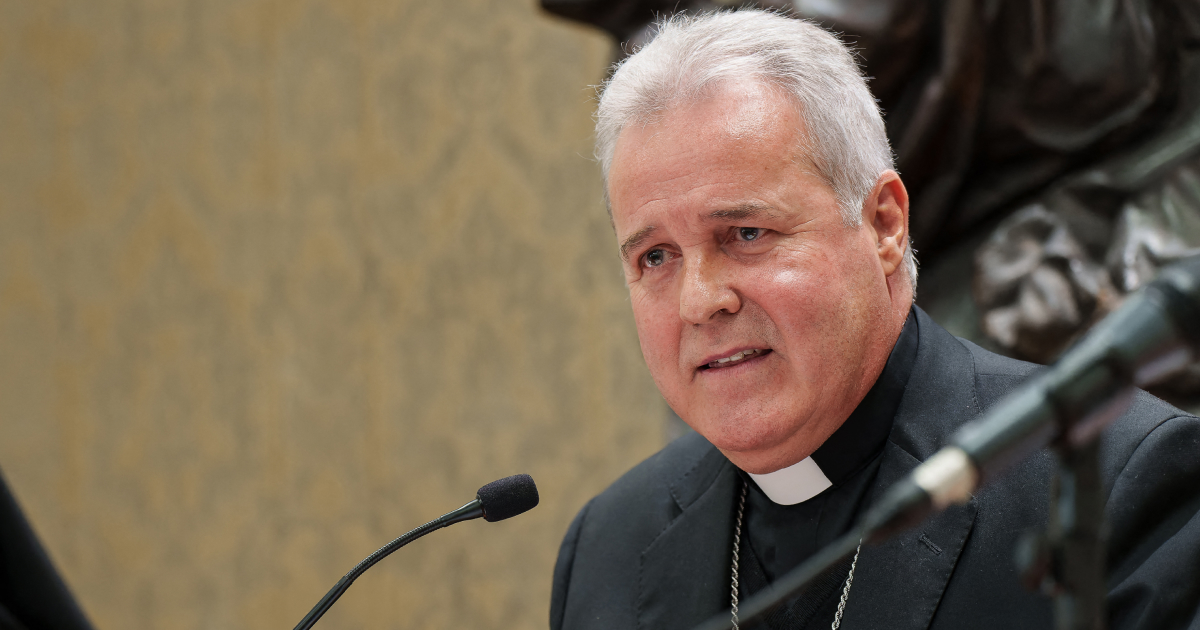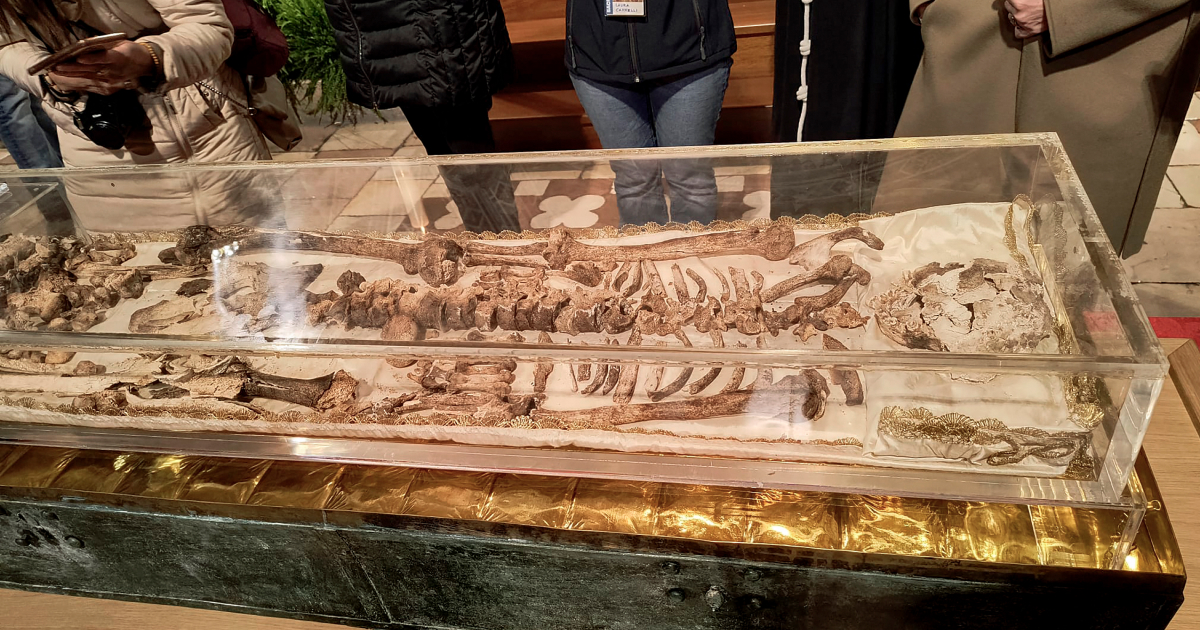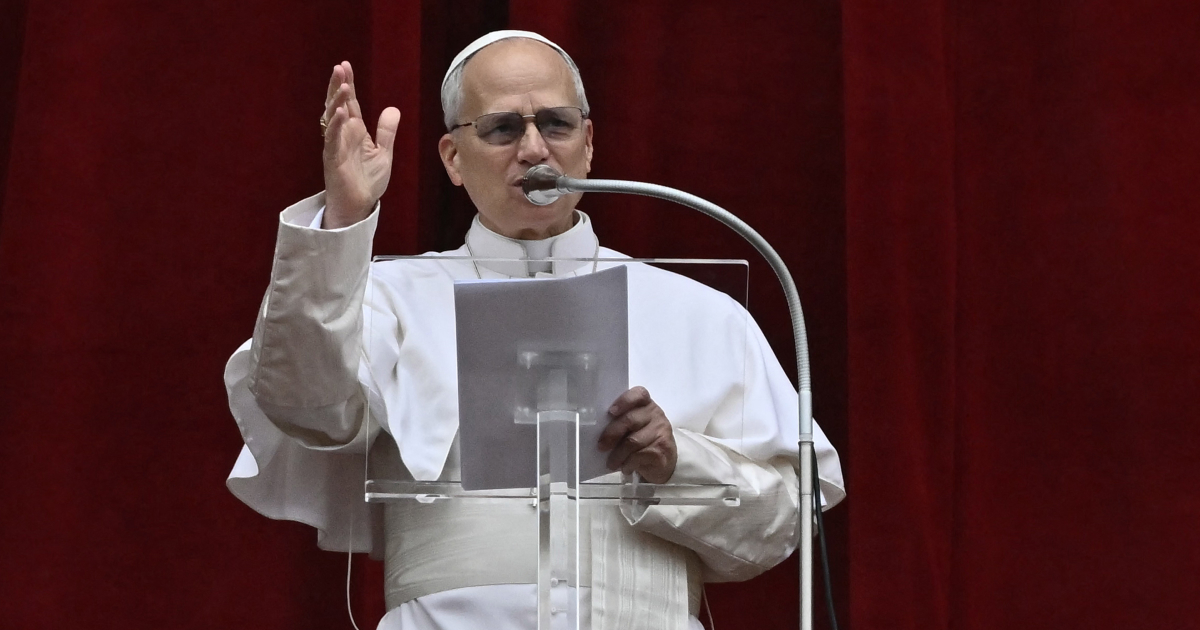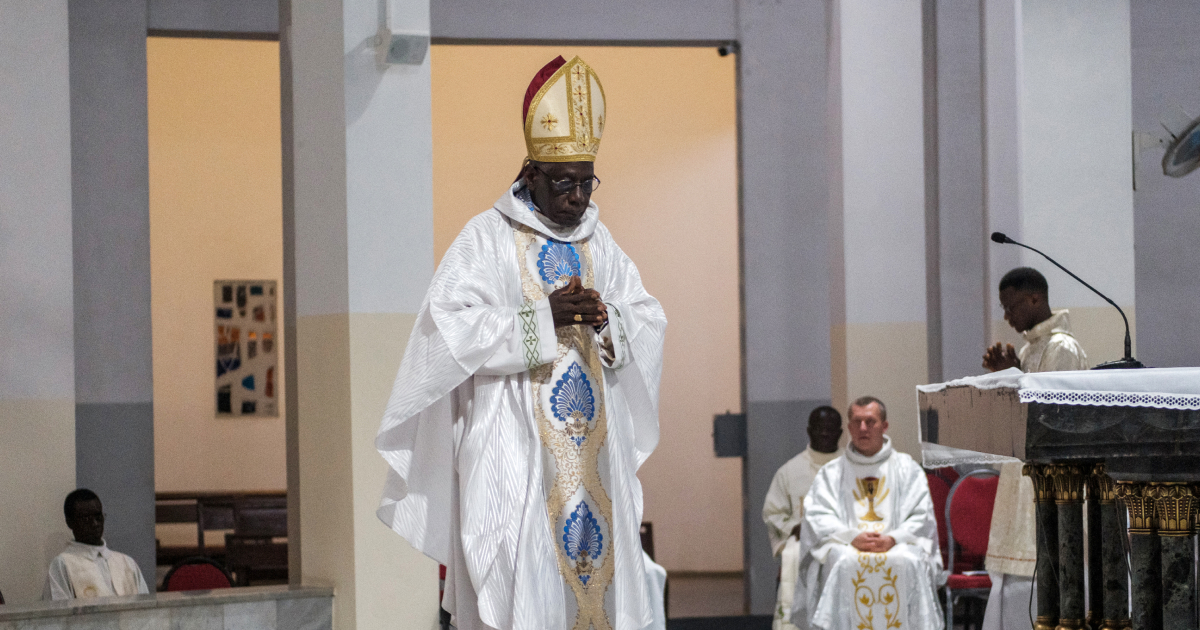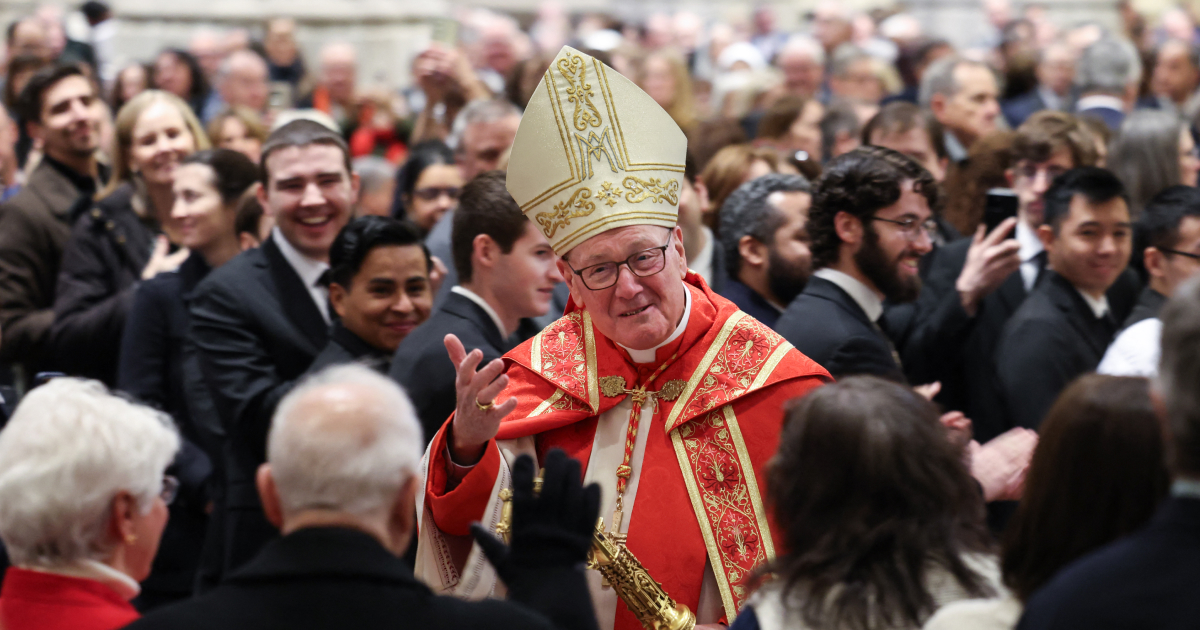“It was terrifying for us. When we heard gunshots, we dropped to the floor. We committed our lives to God.”
Try as he might to sound calm, Father Ukuma Jonathan's voice began to falter as he recounted the catastrophic events of the night before.
Suddenly, it all came pouring out: it was a rainy night in Yelwata, in Nigeria’s Benue State, when militant Fulanis descended on the town from multiple directions.
First, the armed men made for Yelwata’s St Joseph’s Church, where Fr Jonathan serves as parish priest. Inside, more than 700 displaced Christians lay asleep. He said police repelled the militants but lacked the firepower to prevent them from launching an attack on the nearby market square, where hundreds of other IDPs (internally displaced persons) were sleeping in temporary accommodation.
In a two-hour killing spree, up to 200 people died. Many were trapped and burnt alive after the militants used fuel to set fire to the doors of their accommodation. Others were shot dead, and still more were hacked to death with machetes as they tried to escape.
Speaking to me the following morning, having just visited the scene of the massacre, Fr Jonathan said: “What I saw just now was gruesome. Those who tried to escape had been slaughtered. Corpses were scattered everywhere.”
What happened in Yelwata that night—Friday 13 June—was not an isolated incident of persecution. Over the Easter weekend of 18–20 April, 72 Christians were reportedly killed in attacks, also in Benue State. The weekend before Palm Sunday, villages in parts of the state fell victim to other attacks, with more than 100 Christians killed. That same month, a further 40 Christians in neighbouring Plateau State were killed.
In May, militants killed at least 20 people in the Gwer West local government area of Benue.
Evidence collected by organisations supporting persecuted Christians, including Aid to the Church in Need (ACN) and Open Doors, makes plain the scale of the persecution in Nigeria. Last year alone, a reported 3,100 faithful were killed, with a further 2,830 kidnapped.
What makes the atrocity in Yelwata stand out is the sheer number who died in one single attack. As one priest told me: “This is by far the worst atrocity we have seen. There has been nothing even close.”
Collectively, these atrocities—centred on Benue State but by no means exclusive to it—bear the hallmarks of a genocide in the making.
The 1948 Convention on the Prevention and Punishment of the Crime of Genocide defines genocide as “acts committed with intent to destroy, in whole or in part, a national, ethnical, racial or religious group”.
Church leaders and persecution watchdogs have asserted that the atrocities in Benue and elsewhere display many of the characteristics integral to genocide as set out in the 1948 Convention. These include “killing members of the group, causing serious bodily or mental harm to members of the group, and deliberately inflicting on the group conditions of life calculated to bring about its physical destruction in whole or in part”.
The atrocity in Yelwata was an attack on IDPs. Many of the attacks in Benue and elsewhere in the region show repeated intent to forcibly displace communities. In the case of Yelwata, there was evident targeting of a group already forced from their homes.
Fr Jonathan told me that within 12 hours of the massacre, the town was all but deserted, with thousands fleeing to neighbouring towns such as Daudu.
A factor critical in violence meeting the technical threshold of genocide is demonstration of intent. No known declaration or indication of this kind has come from those behind the attacks in Benue and elsewhere in the Middle Belt. But for Church leaders in the area, the systematic and consistent pattern of attacks makes plain the aggressors’ motives.
For his part, the local ordinary, Bishop Wilfred Chikpa Anagbe of Makurdi—whom Aid to the Church in Need hosted this March at events at Westminster and in Scotland—has repeatedly made plain his view that the attacks in his diocese are of the highest magnitude.
Echoing his comments both in Parliament and earlier in the US Congress, Bishop Anagbe recently told me: “Indeed, [it is] because of the numbers killed and dislodged from ancestral lands [that] we speak of a genocide.”
The bishop was speaking in early June, in the immediate aftermath of a sudden spike in attacks which he told ACN had forced the closure of 17 parishes within a week.
The attacks included one in which his own village of Aondona was targeted. Nigeria persecution commentators have suggested this came in direct response to his decision to call out the violence in a statement made in the US Congress in March.
Bishop Anagbe has also been clear that the attacks are motivated by Islamist ideology. He told me: “These terrorists are going on a jihad and conquering territories and renaming them accordingly.”
Witnesses who survived the Yelwata massacre told Fr Jonathan that they heard the advancing militants shout “Allahu Akbar” (“God is great”).
Militant Islamism is not always evident in the attacks that have ravaged many parts of Nigeria, especially in the north. When I travelled to the north-west in March, visiting states including Kebbi, Katsina and Sokoto, Church leaders I spoke to described mixed motives driving the actions of the bandits, with many herdsmen mainly intent on accessing grazing lands for their cattle.
Others, including survivors of abduction and assault, said the militants' principal motive was kidnap for ransom, with many apparently believing—wrongly in most cases—that Christians were more likely than Muslims to pay.
While the identity and motives of the attackers may be open to question in some parts of northern Nigeria, the systematic and predictable pattern of violence in the Middle Belt, especially in Benue, points not only to an Islamist militant motive but also to signs that the attacks are reaching a tipping point.
Stating his hope that “people all over the world come to know about the genocide taking place against our people in Benue,” Bishop Anagbe told me: “What has been happening in my village and diocese is nothing short of terror attacks on innocent villagers in order to seize their lands and occupy.”
Some Western politicians have attributed the attacks to climate change, claiming that nomadic herdsmen are taking increasingly desperate measures in search of grazing lands in response to desertification. Clergy on the ground have railed against these explanations, warning they mask the true ideological nature of the violence.
Nigeria is frequently cited as the most dangerous country in the world to be a Christian, with thousands of priests and faithful at risk of displacement, abduction and murder. Behind the statistics lie the stories of individuals who live daily at risk for reasons associated with their faith.
Senior clergy—who cannot be named for security reasons—have warned me that unless the international community acts swiftly and decisively, the onslaught against Christians in Benue will worsen, threatening a much wider catastrophe across the Middle Belt and beyond.
One man, Solomon, whom I met in a largely deserted village in Zaria diocese, told me how, after being kidnapped, he was pressured to recite the Islamic creed. When he refused, he was whipped, shackled at the ankles, and thrown into a pit of cold water up to his neck.
He told me how his faith helped him survive and stay mentally strong. “I knew there were people like you out there, praying for us.”
For Solomon, and many others like him, hope of change can only come when the international community wakes up to the gravity of what is happening in Nigeria. The world needs to recognise that extremist ideology is playing a critical part in a catastrophe that—if not already a genocide—shows every sign of becoming one. The courage and example of Bishop Anagbe in speaking out means that no one can say they weren’t warned.
John Pontifex is Head of Press & Public Affairs, Aid to the Church in Need (UK)








